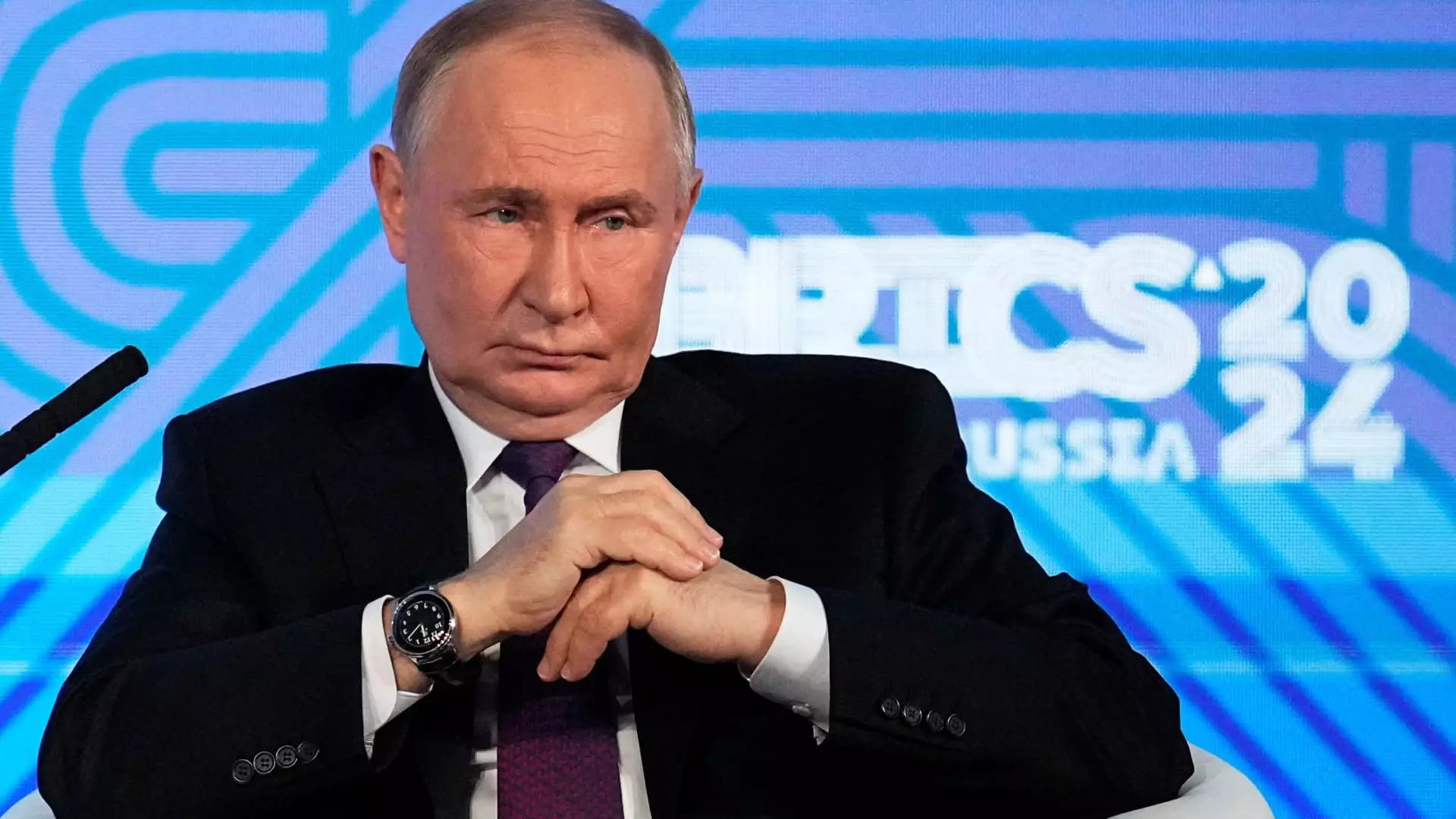The economic landscape of the world is undergoing a notable transformation, with the BRICS coalition—encompassing Brazil, Russia, India, China, South Africa, and newly invited members such as Egypt, Ethiopia, Iran, and the United Arab Emirates—poised to play a pivotal role in shaping global growth in the coming years. Russian President Vladimir Putin’s recent statements underscore the coalition’s ambition to function as a formidable counterbalance to Western nations. The forthcoming BRICS summit, set to take place in Kazan from October 22 to 24, is central to these aspirations, reflecting a concerted effort among member states to strengthen economic ties and enhance collective bargaining power on the global stage.
Putin’s assertion that BRICS members are the “drivers of global economic growth” encapsulates the increasing significance of this group in international finance and trade dynamics. This optimism is grounded in statistics that suggest that BRICS nations will contribute a substantial portion of global GDP growth, particularly in contrast to the stagnation experienced by many developed nations in the West. As these economies expand, there is a growing emphasis on minimizing dependence on external forces—an assertion that aligns with Putin’s vision of achieving economic sovereignty for member states.
This shift towards independence is essential in light of the geopolitical tensions precipitated by the ongoing conflict in Ukraine, which has resulted in intensified sanctions against Russia and calls for a re-assessment of the purity of economic partnerships with the West. BRICS seeks to present itself not only as an alternative for investment and trade but as a champion of a multipolar world order that diminishes the monopoly enjoyed by Western powers, particularly the dominance of the U.S. dollar.
Notably, the aspirations for transformation within BRICS have been matched by practical initiatives designed to bolster inter-member connectivity. Proposals for a joint cross-border payment system and a SWIFT-like alternative that is resilient to sanctions reveal the seriousness with which BRICS is approaching its agenda. Such initiatives promise to enable smoother and more efficient trade among member states, all while diminishing the reliance on traditional Western financial infrastructures. Furthermore, discussions surrounding the development of national digital currencies are indicative of a broader trend toward financial innovation aimed at diversifying economic engagement across borders.
While the prospect of a unified BRICS currency has been deemed “premature” by Putin, the focus remains on leveraging existing national currencies to enhance investment flows. This strategic positioning not only aims to strengthen internal markets but also to entice potential new members, which as per Putin’s statements, has drawn the interest of 30 countries worldwide.
In addition to financial mechanisms, BRICS is targeting infrastructural investments as a means to champion economic resilience. The New Development Bank serves as a central entity for financing projects in member countries, providing an alternative to established Western financial institutions. Putin’s call for greater investment in sectors such as e-commerce and artificial intelligence underlines the coalition’s recognition of technology as an essential driver for future economic growth. Moreover, infrastructure projects, particularly Russia’s ambitious transportation corridors—which include critical routes linking Eurasia with Africa—further solidify BRICS’ vision of enhanced connectivity and economic integration.
The BRICS coalition is at a critical juncture, where its aspirations for economic autonomy and transformation are intertwined with a greater geopolitical narrative that seeks to challenge Western supremacy. As the coalition prepares for its upcoming summit, the discussions held in Kazan will not only address current economic challenges but also lay the groundwork for an expanded BRICS alliance that could redefine global economic governance. If successful, BRICS might well emerge as a significant force, reshaping the economic realities of the 21st century while offering an alternative paradigm to the existing order. The implications of this evolution will be profound, with the potential to foster a new era of multipolarity that prioritizes collaborative development and shared sovereignty among emerging economies.


Leave a Reply